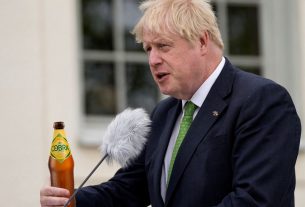Coronavirus rules and restrictions are proving even more divisive than Brexit in Britain, according to a poll of 10,000 people carried out across the UK.
Demos has found that animosity between people who stick to the coronavirus rules and those who do not runs even deeper than the animosity felt between Brexit ‘Leavers’ and EU ‘Remainers’.
The poll is published following another tumultuous week of Brexit and coronavirus reports that seem to be further widening the divides between the people of the United Kingdom.
NHS contact-tracing app to be launched on September 24
The government’s inflammatory admission it will break international law over the Withdrawal Agreement has come with news of the controversial £100 billion ‘Operation Moonshot’ for 10 million daily Covid-19 tests, and the announcement that the long awaited NHS contact-tracing app will finally launch in England and Wales on September 24 – four months later than promised.
“We need to use every tool at our disposal to control the spread of the virus including cutting-edge technology,” said Matt Hancock, the health and social care. “The launch of the app later this month across England and Wales is a defining moment and will aid our ability to contain the virus at a critical time.”
How successful the app will be is dependent on public support and the number of people downloading it. The Demos poll suggests the government has plenty of work to do to rebuild the solidarity and support that epitomised the early stages of the lockdown – before that sense of unity was shattered by Dominic Cumming’s Durham trip.
Resentment and hatred towards lockdown rule breakers
The poll of 10,000 people found that 58% of those wearing masks have severely negative attitudes towards those who don’t, with 68% of people adhering to lockdown rules holding strong negative views about those who flaunt the restrictions.
Demos report that the percentage of “lockdown adherents” that “resent, hate or consider those who did the opposite [ie. the ‘rule-breakers’] to be bad people”, which is more than twice the level of animosity felt by Remainers v Leavers, and three-times higher than Leavers v Remainers.
“We are still just as angry with each other, but about different things,” said the chief executive of Demos, Polly Mackenzie. “People’s experience has been so divergent. What has been good for one person has been awful for someone else.”
PM accuses EU of threatening a food blockade
How far this week’s Brexit developments will have impacted on the levels of “hatred and resentment” between Remainers and Leavers is yet to be polled but the prime minister is further stoking the flames of discord and yesterday he called the EU a “threat to the integrity of the UK”.
Boris Johnson explained his willingness to break international law – by trying to rewrite the Withdrawal Agreement – is to protect Britain from the “disaster” that his very own agreement will lead to, by giving the EU the “power to carve up our country.”
Johnson, in a column for the Telegraph, accused Brussels of threatening to impose a food “blockade” in the Irish Sea that would destroy the “economic and territorial integrity of the UK”.
On Friday (September 11) the PM attempted to head off a backbench rebellion over his government’s “very specific and limited” breach of international law, in a video conference with Tory MPs.
‘Serious misunderstanding is a danger to the very fabric of the United Kingdom’ – PM
His aim, Johnson told his MPs, is to “clear up a serious anomaly” in the withdrawal agreement because the EU’s “serious misunderstanding” about its terms has become a “danger to the very fabric of the United Kingdom”.
Brussels has informed Johnson that trade talks will be over at the end of this month if he proceeds with his plan to rewrite the deal he negotiated, signed and heralded as “a great deal”, while MEPs yesterday said they will not ratify any deal if the PM’s internal market bill is passed by the UK parliament.
In his Telegraph column, Johnson writes: “I have to say that we never seriously believed that the EU would be willing to use a treaty, negotiated in good faith, to blockade one part of the UK, to cut it off, or that they would actually threaten to destroy the economic and territorial integrity of the UK.”




